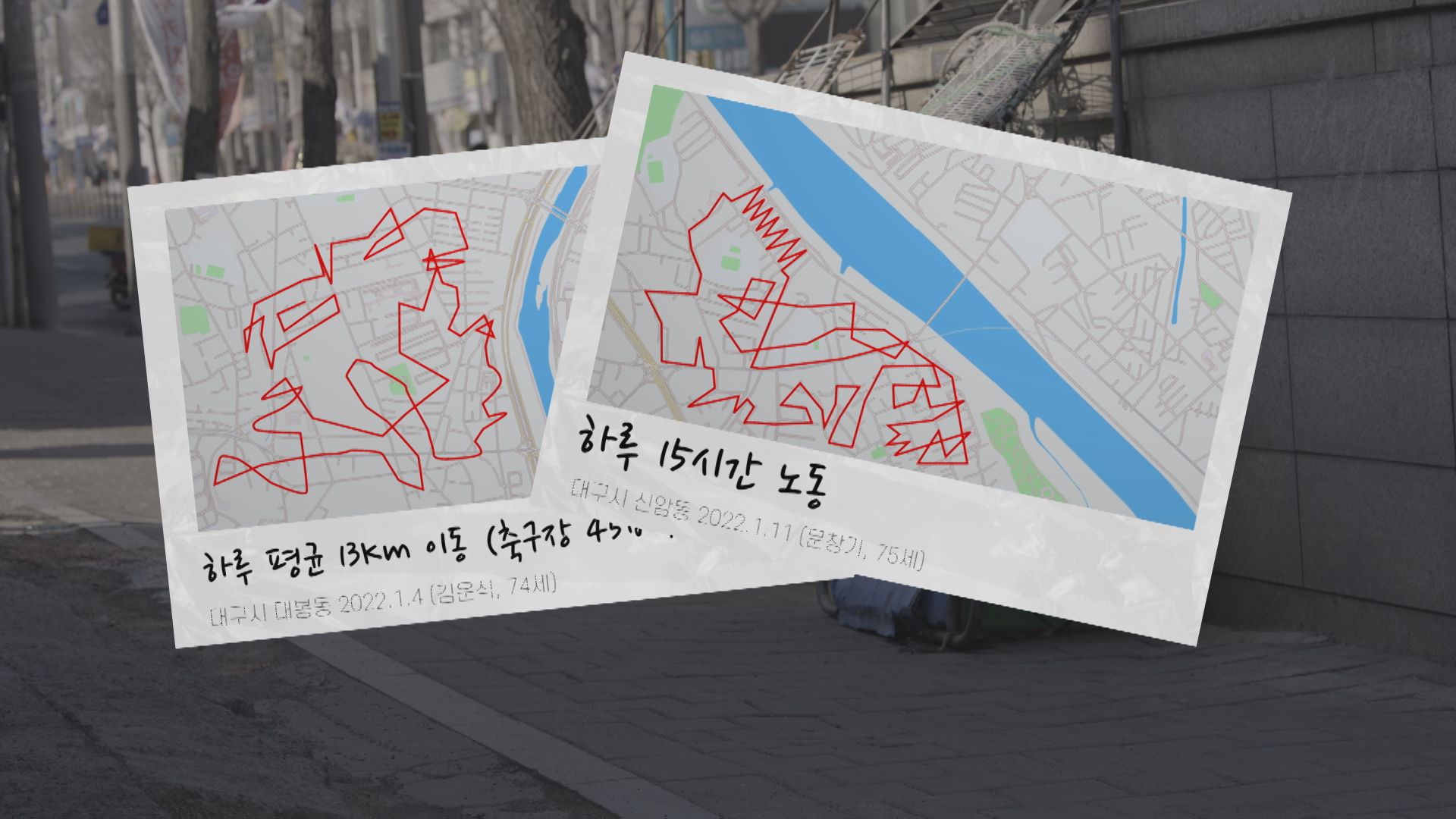
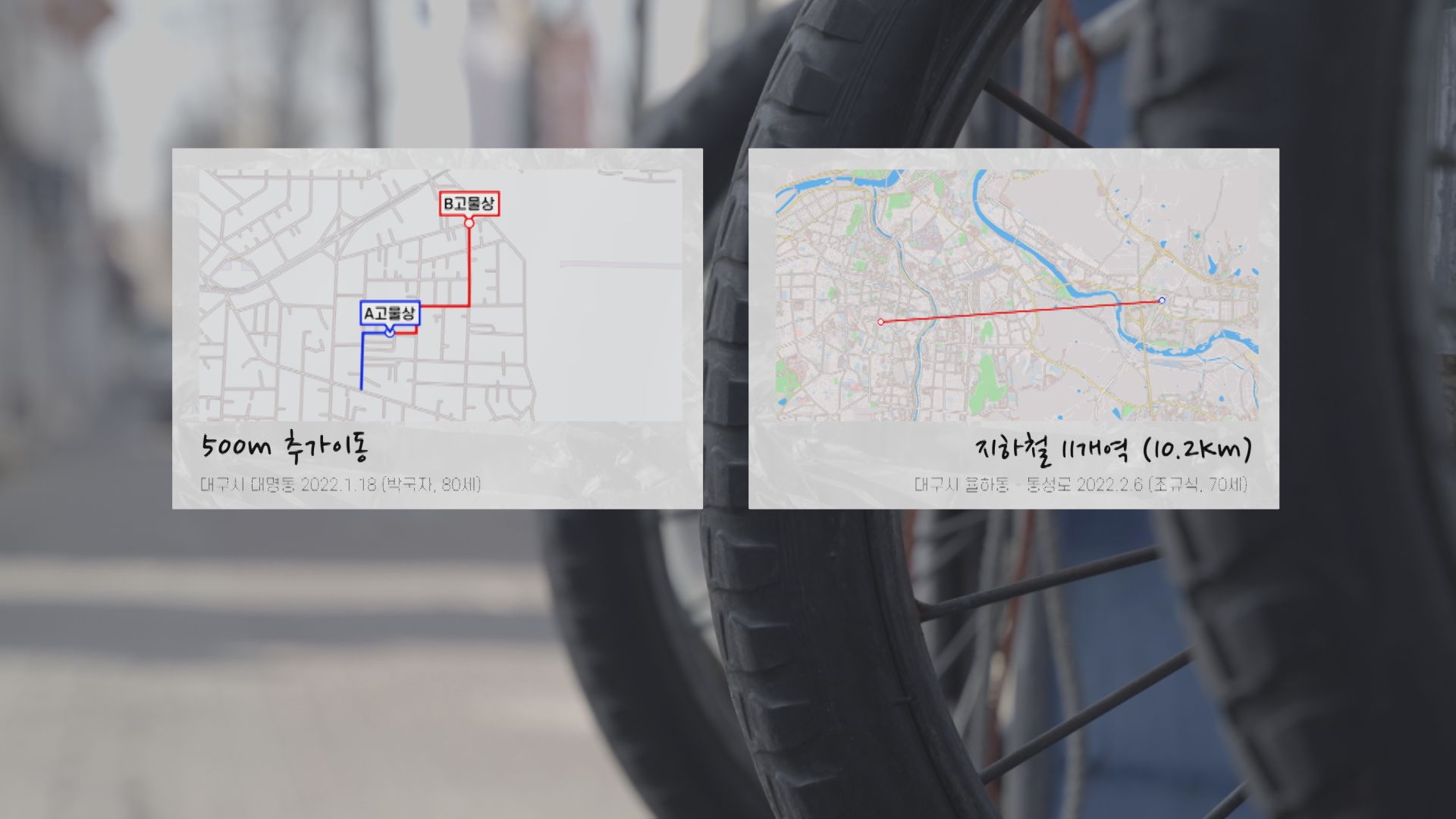

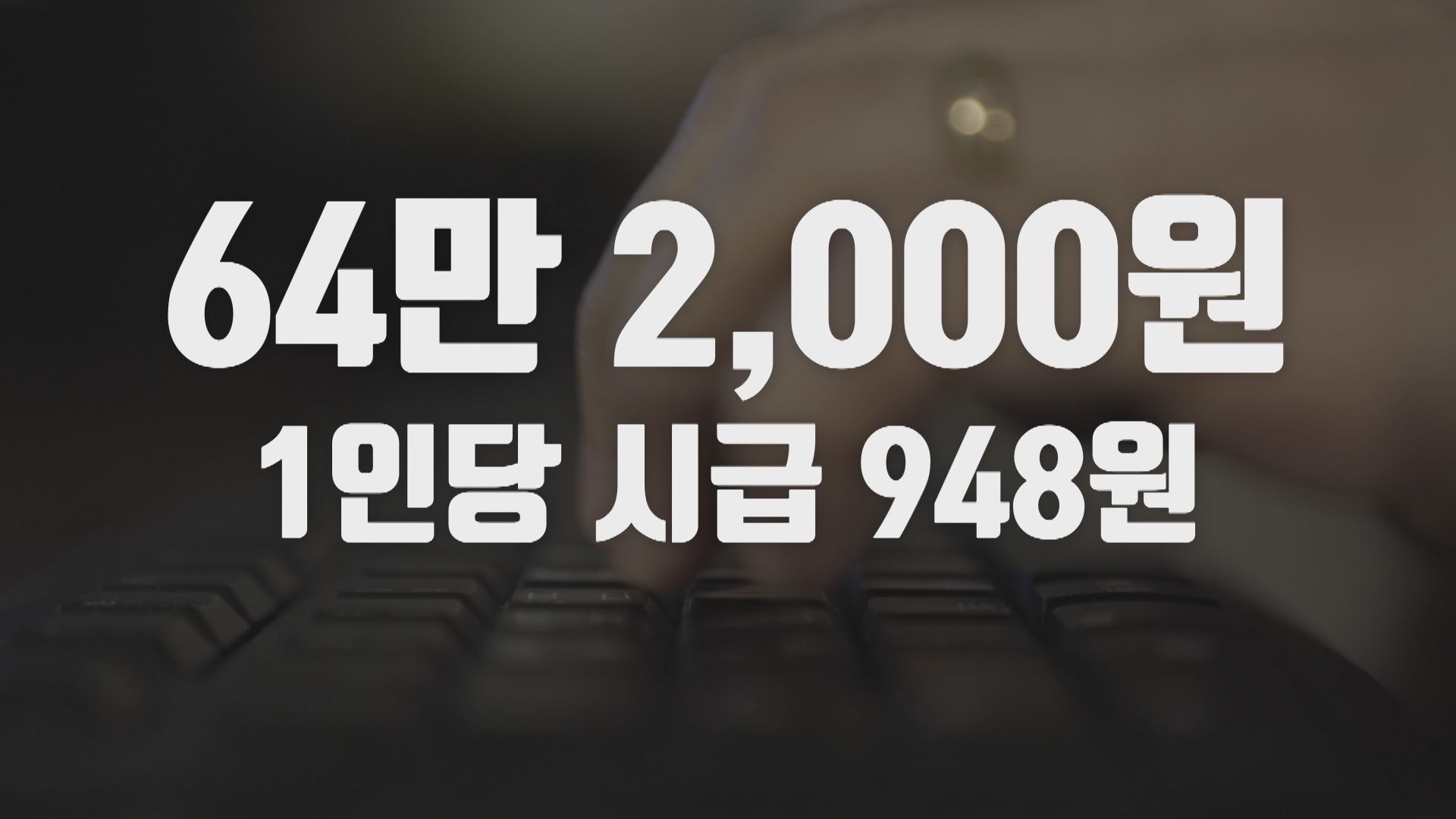
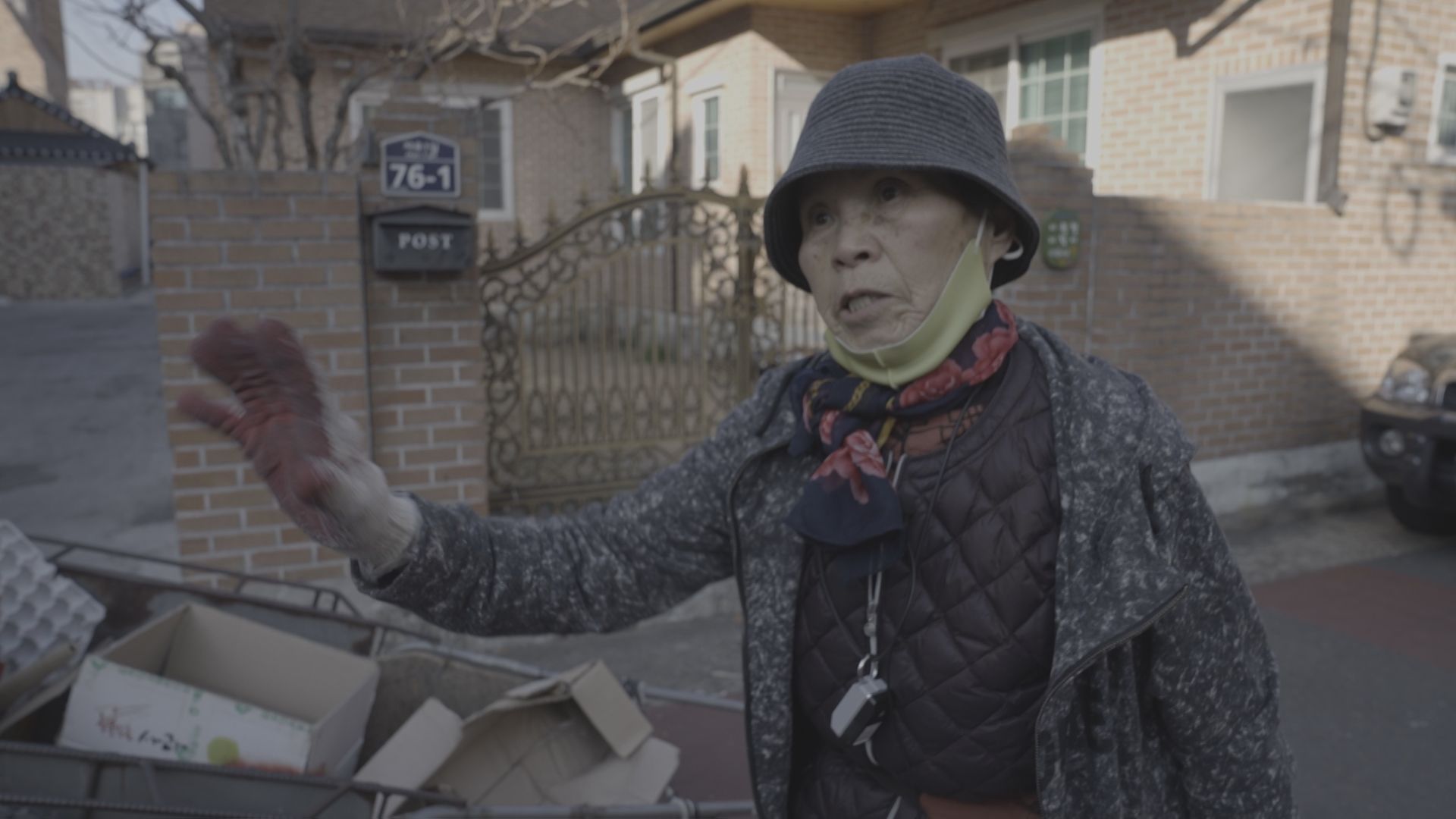
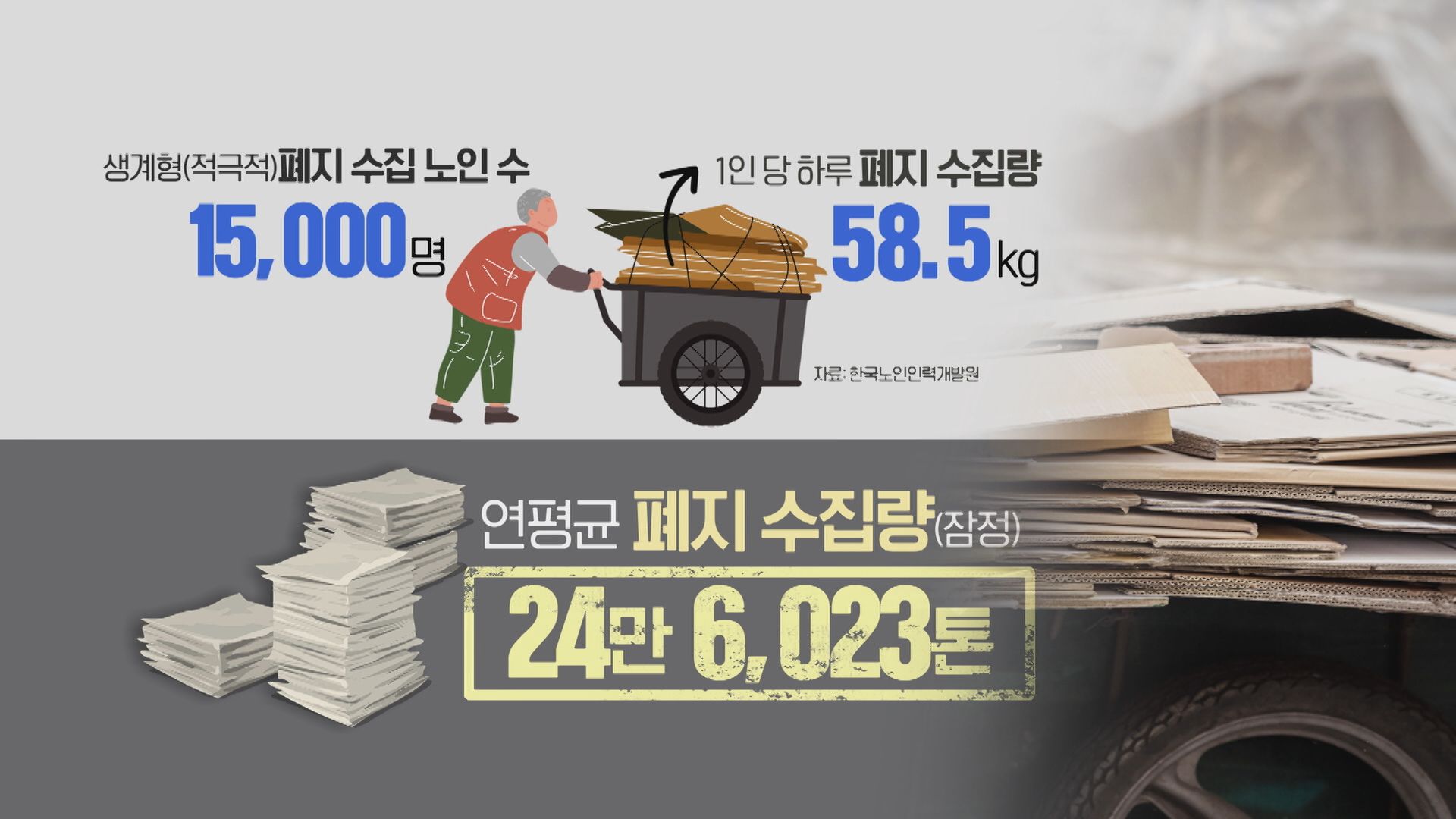
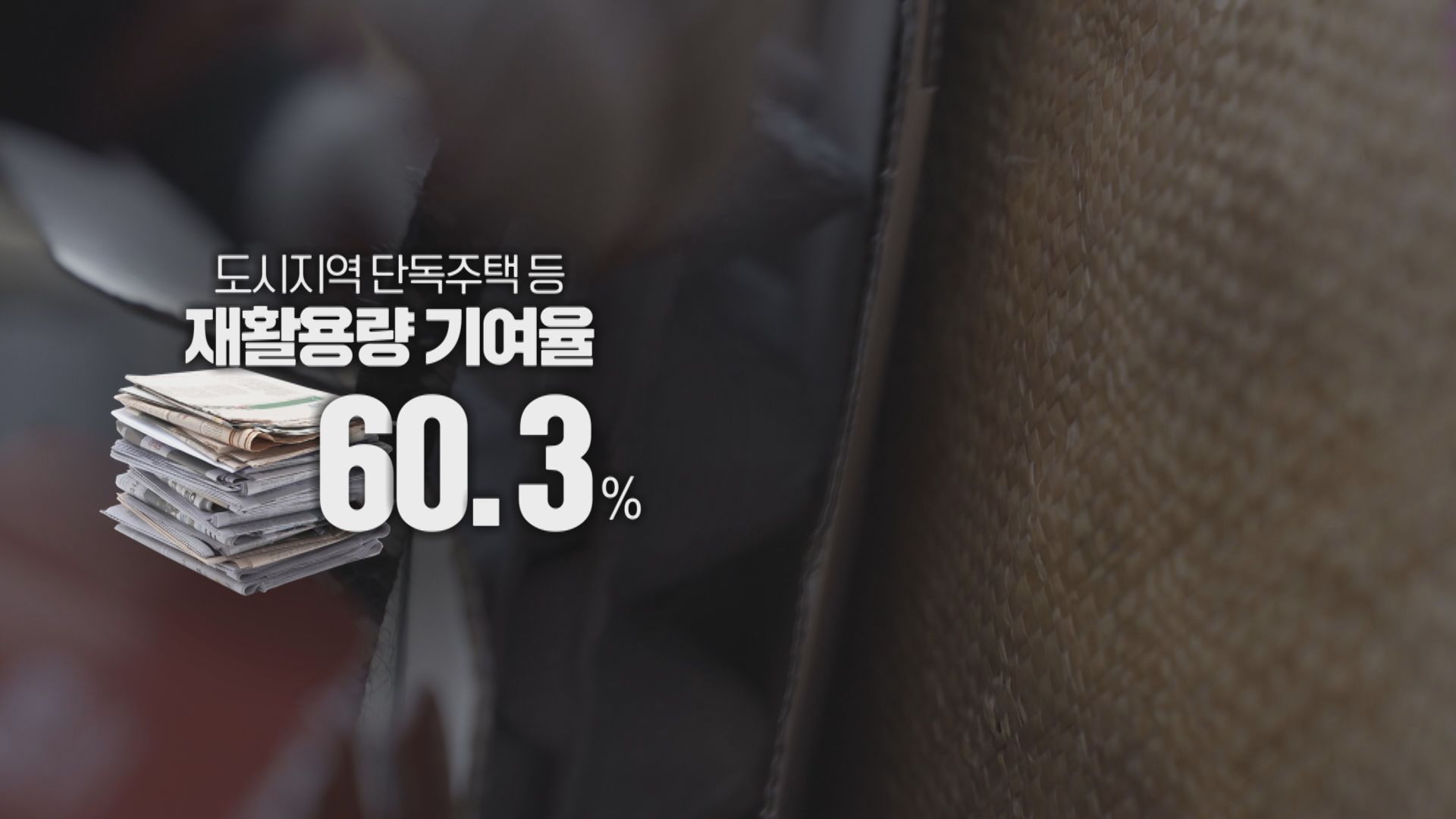
10 elderly people who collect waste paper are selected and GPS is installed to data the travel distance and movement time.
They work an average of 11 hours and 20 minutes a day and walk 13 kilometers.
The price per kilogram of paper is 120 won. They also take the trouble of going to a further junk shop to get to a place that offers even a little more price.
Grandmother Park Guk-ja.
“The junk dealer gave me 100 won for 1kg of paper, so I asked him to give me 10 won more, and he said he’d only leave 20 won. So I turned around and came to this junk shop, and he gave me 150 won.”
There is a competition among workers, so they are pressed for time and money, so they eat ramen or starve on days when they can’t collect much.
Grandfather Moon Chang-ki.
“I don’t have time to go home to pick up more waste paper.” “So I’m going to eat cup noodles and pick up the paper”.
Grandpa said he wanted to eat gomtang the most, but he couldn’t buy gomtang for 9,000 won.
Grandpa said he wanted to eat gomtang the most, but he couldn’t buy gomtang for 9,000 won.
Ten elderly people walked a total of 743 kilometers for six days, and their working hours totaled 677 hours.
The total amount of waste paper earned by these 10 people is 642,000 won, which is only 948 won per hour.
It is one-tenth of the minimum wage of 9,160 won in 2022.
Grandmother Park Guk-ja collects waste paper since 2002.
Don’t think of this as a sloppy job. This waste paper is the raw material for making boxes. If you throw away this waste paper, it’s trash, and if you collect it, it’s a resource. It’s a resource in Korea. All
These people are surprisingly proud of their poor working conditions and earnings. be proud to contribute to the recycling of resources
But when I looked into it, it was not the illusion of the elderly, but the truth.
Based on the population of 15,000 people, the researchers calculated the amount of waste paper collected per day using 384 hours of working hours per day and 585kg of waste paper collected per elderly.
Most elderly people collect waste paper discharged from multi-family houses in single-family multi-family homes in urban areas. The total amount of waste generated in detached houses in urban areas in 2019 was 867,707 tons, of which 408,036 tons were recycled.
In other words, simply speaking, the elderly collecting waste paper collecting about 603 of the waste paper recycling discharged from single-family housing areas in Korea! If the amount of waste collected by non-living elderly people is added up, the contribution rate will be much higher.
There was a consensus among politicians that a system that could only bring the labor of the elderly into the public domain and pay the minimum wage would reduce the poverty rate of the elderly, and they are preparing to legislate.